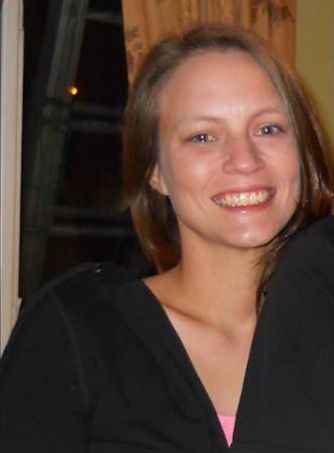As some of you may know, Loretta Saunders, a 26-year-old Inuk woman from Nunatsiavut (Inuit territory in Labrador), has been missing since Thursday, February 13. Her family and friends first became aware of her disappearance on the morning of Monday, February 17, when it became clear to everyone close to Loretta that she hadn’t been in touch with anyone during this 3-day period.
The last time I met with Loretta Saunders, two weeks ago, I had never felt more inspired and proud of a student. She had sent me her thesis proposal the week before, and at nearly 11,000 words (28 pages), it was 3 times what the department expected of honours student proposals. Beyond its remarkable length, Loretta carefully presented her research in what I recognized as the most beautifully written and cared-for assignment I had ever read in seven years of university teaching, evaluating literally thousands of assignments. I was so buoyed by her rigorous writing and research that I sent her a message telling her so. Here’s an excerpt from my email, dated February 1st:
“Your thesis proposal is absolutely amazing. It’s a thing of beauty. Your writing is mostly perfect; you’re developing your own narrative voice due to your remarkable attention to detail. But more importantly than the great spelling, grammar and referencing, you have a voice, you write in a style that is all your own, and it flows wonderfully.
If you ever have any doubts that you can succeed in academia, save this email and read it over. You have the writing, researching and analytical skills of somebody who is on their way to receive a PhD. You can accomplish whatever you like academically [my note –these two sentences were all in CAPS].
Our world needs more people like you Loretta; please keep reading and writing about whatever you’re most passionate about. I will do everything I can to support your efforts to become the intellectual and community leader you are meant to be.”
When we met a few days later on February 4th, it was my first opportunity to provide her with feedback after reading her proposal. In typical Loretta style, she was humble and avoided any mention of my comments or the proposal. For the first 30 minutes, we discussed the nuts and bolts of her thesis research. Contrary to many media reports, Loretta had not completed her thesis; she was very much working out its details under my guidance and with the added support of department chair Russell Westhaver, other faculty, students in the honours program, and community members.
Loretta’s research broaches a topic that is largely taboo in Canadian society: the heartbreaking phenomenon of missing and murdered indigenous women. In particular, Loretta aims to understand the disappearance and/or death of three indigenous women in Nova Scotia. Over the past three months, as her decision to tackle this difficult issue crystalized, she had received guidance from several Mi’kmaq women, all important spiritual and community leaders impacted by and concerned with the disproportionate violence that indigenous women and girls continue to experience in Nova Scotia and in Canada.
In an act of courage that still moves me deeply, Loretta refused to turn away from the traumatic nature of this violence; she chose instead to invest all of her energy in a healing journey that would benefit indigenous youth in her home territory and in indigenous communities and territories wherever they encountered her. It was both a deeply personal journey, and one filled with intellectual curiosity. Above all, during our last meeting, Loretta articulated her firm commitment to share her work and experiences with an open, genuine, and loving heart.
Once we ended the more prescriptive segment of our meeting, I finally looked Loretta in the eye and expressed out loud what I had previously written in an email. I stammered in a way a bit foreign to me, since I’m not in the habit of expressing such awe and gratitude to my students. Despite my awkwardness, a tear welled up in her eyes, as it did in mine. We both looked down, away from each other. A thought kept circulating in my mind: “How does Loretta do it?”
I have been overwhelmed with a feeling of powerlessness in the past few days, only temporarily replaced by flurries of activity and moments of tender care with loved ones.
Since Monday, I've been thinking obsessively about getting to read the rest of that project sometime soon because it's far easier than wondering about where she might be. She can express her passion and belief in justice for indigenous women in ways that are utterly arresting, given her own will to live and thrive in a world that, it seems, does way too much to deny her the very possibilities that so much of us take for granted.
Until the day arrives for our next meeting, my door remains open, and my commitment to Loretta, her family, and the struggles of indigenous women throughout Turtle Island has intensified.
Darryl Leroux teaches sociology and criminology in K’jipuktuk, Sikep’nekatik district, Mi’kma’ki. He first encountered Loretta in a class that he was guest lecturing in almost a year to the day that he posted this article. She was the student at the front of the class who asked very challenging questions. He was quite pleased when she turned up at his office a few weeks later asking him to supervise her honours degree thesis.



